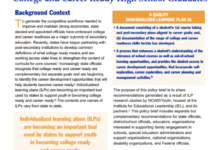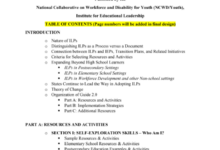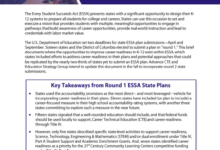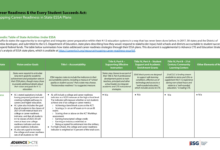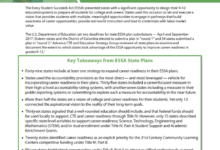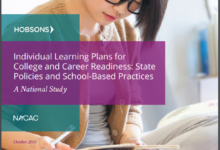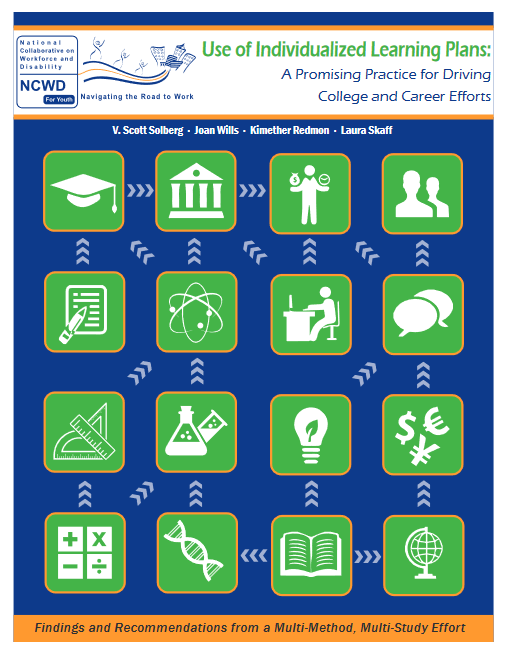This report from the National Collaboration on Workforce and Disability (NCWD) summarizes the findings and recommendations of a five-year research study commissioned by the U.S. Department of Labor’s Office of Disability Employment Policy (ODEP). The goal of the study was to determine whether Individualized Learning Plans (ILPs) should be considered a promising college and career readiness practice and whether and how youth with disabilities are participating in these efforts. The multi-study effort found two patterns:
1. ILPs share a common set of characteristics;
2. ILPs are increasingly understood to be the lynchpin tool for linking the twin goals of college readiness and career readiness.
The report outlines key research findings from the study, recommendations for establishing quality ILP implementation, recommendations for assessing the impact of ILPs, and the people who should act upon these recommendations.

